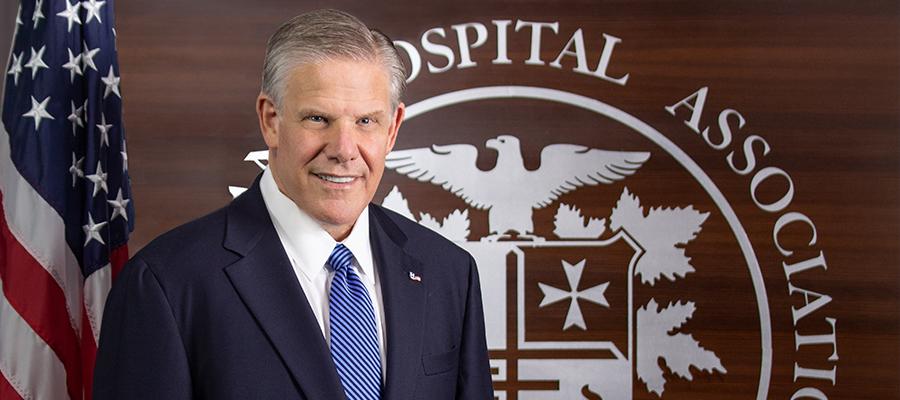Perspective: COVID-19 Challenges Continue and Continued Support Needed

The optimism of early summer that we were turning the corner on COVID-19 has been replaced with hard reality. The pandemic will be with us for the foreseeable future, affecting not only our nation’s health, but also hospitals’ and health systems’ ability to improve it.
A new analysis prepared by Kaufman, Hall & Associates, LLC and released this week by the AHA shows that higher expenses for labor, drugs and supplies will continue to challenge the financial health of hospitals and health systems throughout the rest of this year.
The report projects hospitals nationwide will lose an estimated $54 billion in net income over the course of the year, even after accounting for federal relief funding from last year, and more than a third of hospitals are expected to end 2021 with negatives margins. The uncertain trajectory of the delta and potential other variants in the U.S. this fall could result in even greater financial uncertainty as hospitals care for sicker patients.
The analysis backs up what providers nationwide have being seeing for some time:
- Labor costs, and in particular the increased reliance on travel nurses to supplement stretched workforces has greatly affected the budgets of many hospitals and health systems. We have urged the Federal Trade Commission to investigate reports of anticompetitive profits by staffing agencies.
- Many hospitals and health systems are treating sicker patients and more complex cases. While treating COVID patients requires expensive and sophisticated services, some of this also stems from care deferred by those who put off seeking needed services during the pandemic, which has resulted in untreated conditions. Research () has shown that people have put off care, and life expectancy in the United States fell by a year and a half in 2020 to 77.3 years, primarily due to the deaths caused by the COVID-19 pandemic. It is the biggest one-year decline since World War Two.
- In addition, hospitals face rising costs for basic supplies and resources. These include drugs, purchased services, personal protective equipment, and other medical and safety supplies needed to care for higher acuity patients.
Despite these difficult challenges, nurses, physicians and all members of our hospital teams come to work each day with one goal in mind – providing the best care to every patient. We must support our caregivers and front-line teams who have done so much for us during this unprecedented public health crisis.
As we look toward the end of the year, we’ll be working with Congress and the Administration on a number of fronts. These include: advancing key priorities from our advocacy agenda in the infrastructure and reconciliation packages; extending relief from the Dec 31 Medicare sequester and PAYGO cuts; and making sure COVID-19 emergency relief funds are distributed to hospitals and health systems, including those caring for patients during the fourth COVID-19 surge, as quickly as possible.
All of these efforts are critical to making sure hospitals and health systems can meet their mission of advancing the health of individuals and communities. As our Board Chair, Rod Hochman, M.D., reminds us, “Health care is about human connection: people taking care of people. The people of America’s hospitals and health systems do this each and every day, and the COVID-19 pandemic has shone a spotlight on the vital role they play in our nation’s health and safety.”

